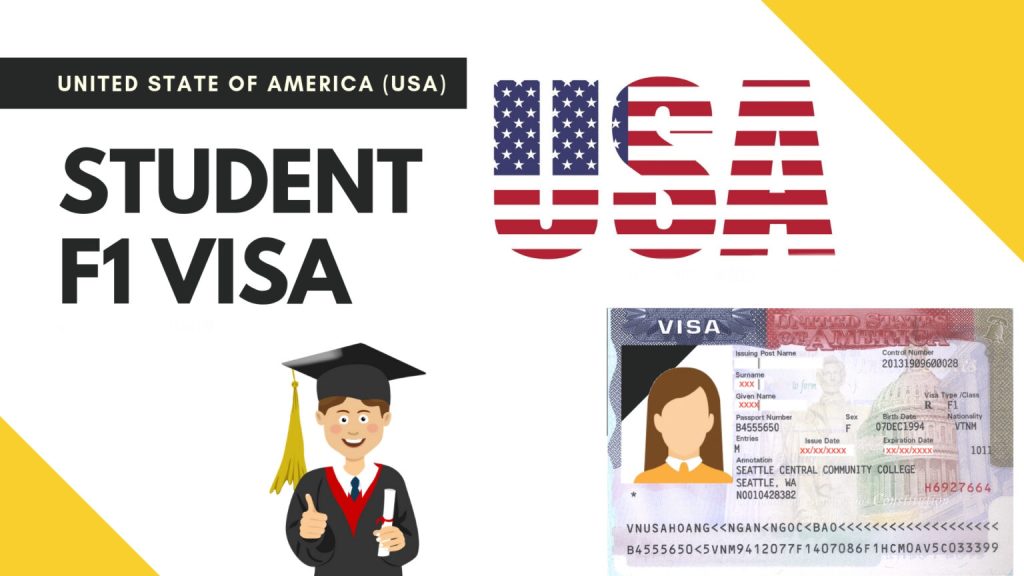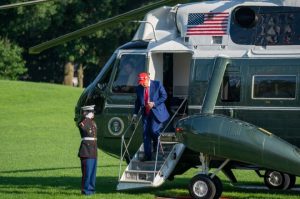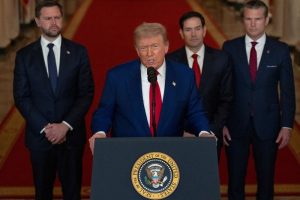U.S. resumes issuing visas to foreign students, but requires social media accounts for review

The U.S. State Department said Wednesday it would resume the previously suspended processing of foreign student visa applications, but all applicants must now open their social media accounts to the government for review by consular officers.
The department said consular officers will focus on reviewing applicants’ posts and messages for content that is considered hostile to the United States, its government, culture, institutions or founding principles.
The State Department announced a reversal of its May suspension of student visa processing, but noted that new applicants who refuse to set their social media accounts to “public” and allow review may be denied, according to a notice made public Wednesday. The notice said a refusal to open an account could indicate an applicant is trying to circumvent requirements or hide their online activity.
The Trump administration temporarily suspended scheduling new visa interviews for foreign students last month while preparing to expand screening of their social media activity, officials said.
Students around the world have been anxiously waiting for U.S. consulates to reopen visa interview appointments so they can arrange travel and accommodation before the start of the new school year.
On Wednesday afternoon, a 27-year-old Chinese doctoral student in Toronto successfully scheduled a visa interview for next week. He plans to travel to the United States in late July to begin a research internship. “I’m really relieved,” said the student, who did not want to give her full name. “I’ve been refreshing the site several times a day.”
Students from China, India, Mexico and the Philippines posted on social media that they have been closely following visa appointment websites and State Department press conferences for updates on the resumption of interviews.
When reopening the visa process, the State Department has instructed consulates to prioritize student visa applications for universities where foreign students account for less than 15% of the total number of students, according to a U.S. official familiar with the matter. The official requested anonymity because he was not authorized to disclose the information.
According to an Associated Press analysis of 2023 federal education data, international students account for more than 15% of the total number of students at nearly 200 U.S. universities, most of which are private universities, including eight Ivy League schools. This standard also covers 26 public universities, including the University of Illinois and Pennsylvania State University. If we only look at undergraduate data, international students account for more than 15% of the total number of students at about 100 universities (almost all of which are private universities).
In the United States, international students have recently faced multiple scrutiny. In the spring, the Trump administration revoked the permission of thousands of students to study in the United States, some for simple traffic violations, then abruptly reversed its decision. The administration has also expanded the conditions under which foreign students can be stripped of their legal status.
As part of its pressure on Harvard, the Trump administration has moved to block foreign students from attending the Ivy League school, which relies on international tuition and makes up a quarter of its student body. Trump has said Harvard should limit the number of foreign students to 15%.
The State Department said Wednesday that the expanded review of student social media “will ensure that we adequately screen everyone who seeks to visit the United States.”
In internal guidance to consular officials, the State Department said officials should focus on looking for “any signs of hostility toward American citizens, culture, government, institutions, or founding principles.”
Jameel Jaffer, executive director of the Knight First Amendment Institute at Columbia University, said the new policy is reminiscent of ideological censorship during the Cold War, when many well-known artists and intellectuals were excluded from the United States.
“This policy makes every consular officer a censor and will inevitably suppress legitimate political speech in the United States and abroad,” Jaffer said.
The Trump administration also asked 36 countries to commit to increased screening of travelers or risk banning their citizens from visiting the United States. According to a State Department diplomatic cable released over the weekend, the countries have 60 days to respond to U.S. concerns or risk being added to the travel ban list, which now includes 12 countries.






